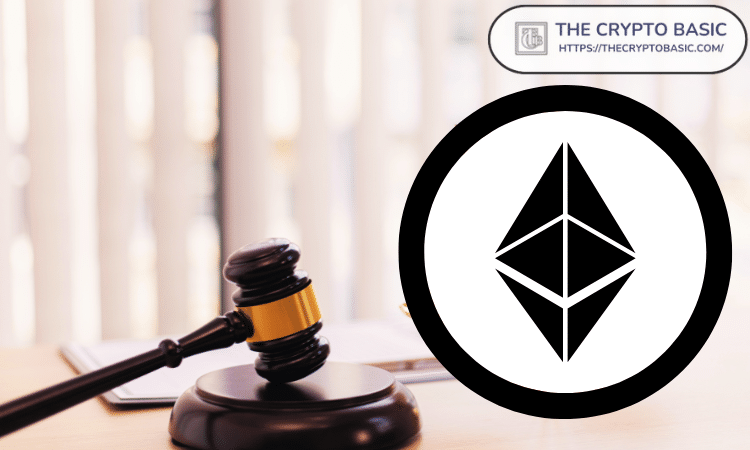Morgan said that while the SEC does not classify Ethereum as a security, it is investigating whether certain transactions, including the offering and sale of ETH, constitute investment contracts.
Bill Morgan, a prominent XRP supporter and lawyer, called on X to correct Congress on its misconceptions surrounding the classification of Ethereum as a security.
Congress finds SEC action on Ethereum inconsistent
Attorney Morgan issued a correction in response to the U.S. House Financial Services Committee's X post claiming that the Securities and Exchange Commission (SEC) classified ETH as a security.
The commission, which oversees the U.S. financial services industry, said the SEC's attempt to put a securities tag on ETH was made by Commission Chairman Gary Gensler regarding the regulatory status of the No. 2 cryptocurrency. He said it contradicted his previous statement.
For context, during a Congressional hearing last year, Gensler refused to answer questions about whether ETH is a security.
The Republican wing of the Financial Services Committee has vowed to focus its efforts on holding the SEC accountable for regulatory overreach.
Pro-XRP lawyer corrects Congress
As expected, this development sparked a reaction among crypto advocates, with attorney Morgan correcting Congress' misconceptions on the issue.
– Advertisement –
Morgan clarified that the SEC does not intend to classify ETH as a security. Instead, regulators are investigating whether certain transactions involving the offering or sale of ETH qualify as investment contracts.
Pro-XRP lawyers emphasized the need for Congress to identify the difference between classifying an asset as a security and investigating whether a particular transaction involving the asset is a security.
This is also not accurate. The SEC does not classify ETH as a security. We are investigating whether the offering or sale of Ethereum falls under the category of securities. Please understand the difference. Apparently, members of Congress have not read Judge Torres' summary judgment in SEC v. Ripple… https://t.co/dpW12HrC7t
— Bill Morgan (@Belisarius2020) April 30, 2024
He criticized policymakers for not reading the summary judgment decision in SEC v. Ripple. The sentencing judge ruled that while tokens themselves are not securities, certain transactions involving them may be investment contracts, Morgan said.
Specifically, Judge Annalisa Torres ruled that XRP itself is not a security. However, she declared that Ripple violated securities laws when it offered and sold XRP to institutional customers.
Similarly, the SEC's investigation focuses on whether certain ETH transactions constitute securities.
ConsenSys moves to prevent SEC from attaching security tag to ETH
News about the investigation spread quickly after Forbes reported in March that the SEC had issued a subpoena to the Ethereum Foundation.
Before issuing the warrant to the Ethereum Foundation, the SEC also issued subpoenas to other top US-based crypto companies regarding the investigation.
Amid all signs of the SEC's efforts to bring ETH within its regulatory purview, ConsenSys, a private blockchain company and major Ethereum supporter, sued the regulator in federal court in Texas last month. ConsenSys aims to prevent the SEC from classifying ETH as a security.
Disclaimer: This content is informational and should not be considered financial advice. The views expressed in this article may include the personal opinions of the author and do not reflect the opinions of The Crypto Basic. We encourage our readers to conduct thorough research before making any investment decisions. Crypto Basic is not responsible for any financial losses.
-advertisement-

